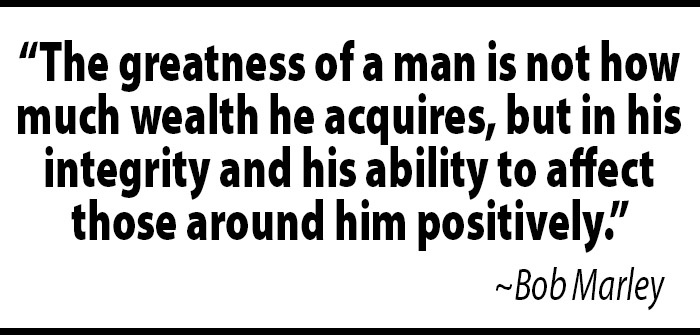A Rich & Rewarding Life After Your Long Career
In last week’s episode of my podcast, Recession Proof Your Retirement, I had the opportunity to interview Andy Robin. He’s a Retirement Revolutionist! He’s also the author of: The Tapas Life. A Rich and Rewarding Life After Your Long Career. He believes the mass media image of retirement is broken and it doesn’t have to be just sitting on the beach watching the waves or knitting wooly sweaters till you die. We all know some people are just fine living a life of leisure until they fade away, while others prefer to work until they’re carried out of the office with their boots on.
Robin received his MBA from Harvard University and had a long fruitful business career from being the CEO of a successful tech start-up to the VP of marketing for a $600 million company. However, when he retired, he was left with a gaping void. Biking around town and going to museums was fun for a few weeks, but then it lost its appeal. He was left thinking “what now?” Today he’s a ‘life after life’ coach as well as an avid traveler, gourmet cook, wine collector and piano performer. He states: “You could be retired for decades so you might as well get good at it!”
His book is a step-by-step process to leading an interesting, rich and fulfilling life after a long career. He refers to it as a “Tapas Life.” I love these small, delicious dishes of Spain, especially with a glass of Rioja! Robin uses tapas as an analogy to best share how appropriate and beneficial it is to dabble with many different hobbies and activities as you enter retirement to determine what tastes best to you. He also understands that this can be challenging for some, so he offers some prudent ideas, but let’s look first at the origins of the word retirement.
The word Retirement is an interesting one. It comes from the Latin word Retir — which means — to end or be put out of use. A generation ago, people would spend their entire career with one company, receive their gold watch and just three to four years later they were dead! Today, people are living 20 to 30 years longer in this chapter of life. I have found that many people emotionally end while others are just getting started when their work life ends. My thoughts on retirement have changed over the years. In the past my goal was to retire as early as possible, but my perspective flipped when my mentor Dan Sullivan shared this impactful story. It was his 70th birthday and at the time he was (and is still) running his international coaching company Strategic Coach. A colleague asked him when he planned on retiring. His answer was: “I retired years ago.” What do you mean? She responded. You’re still working. He replied “I retired years ago from the things at work I no longer wanted to be doing.” Dan spends 80 percent of his waking hours in his Uniqueability — doing the things at work that he is passionate about. Today he’s 75, continues to stay young, happy and passionate for life.
In Tapas Life, Robin writes about living a Risk-Free Adventure by ‘Failing Freely’. He shares that from the time you’re an infant, the focus is always on your next success, from eating solid foods and then holding your bottle, standing and walking, learning throughout school, attending college, getting a job, finding a life partner, raising a family and it goes on and on. Each step along the way has consequences if you fail at it. He stated that once you enter your post-work life and you’re hopefully not financially challenged, you have the freedom to try almost anything, and if you fail at it — it just doesn’t matter! Minimally, you get the benefit of learning. I like to refer to this as failing your way to success!
I have seen firsthand how depression can set in for many successful people once they leave their career behind. I guess if you are your job and then you no longer have that work — by definition — you aren’t! “Go decompress in the beginning stages of retirement,” he recommends. “Play all the golf or tennis to your heart’s content, take that cycling trip that you have been dreaming of. Eventually there will be a need for the return to structure in your life.” Robin feels retirees can best adapt to post-work life by avoiding what he refers to as the White Rabbit in a Snowstorm. That’s what your calendar looks like when it’s all white. There’s nothing there. This can lead many to feeling adrift and untethered. He goes on to say: “Some structure can make all the difference. It does not have to be a lot, however it is important. It can be as simple as making breakfast, checking your email, completing a crossword puzzle. Other days can have watering the plants or doing the financials and socializing with others. Get something on your calendar! Don’t wake up to look at a blank sheet.”
He realizes that not everyone wants to play pickleball or hike the Pacific Crest Trail. For those who truly were their job, Robin suggests keeping your Business Brain alive by applying it to meaningful work. This can be as easy as making the effort to stay in touch with friends from work. Many people feel fulfilled giving back and becoming a mentor to younger people in your industry is a great way to do so. Get involved with nonprofit boards or in community organizations. This can give you purpose and share an important skill set you have.
When we’re working, we tend to have more social interactions and connections with others. I believe that a lack of human contact and isolation can lead to a slow death for many. In a recent episode I interviewed Lauren Ballentine, an expert on Long-Term Care, about the importance of planning for assisted living or home care. Robin similarly writes a chapter in his cook titled: Stay Healthy to Delay the Day When Your Loved Ones Become Your Caregivers. We can’t stop time, however, I have always felt that we can control so much of the aging process with our attitude and outlook. I appreciate his visual of the continual down slope or the straight-line approach before a cliff at the end. Do a little exercise, eat healthy and keep your brain engaged. As a result, you have this great life that goes on until the machinery gives out — maybe your last year or two. The ill-fated alternative is not to engage in exercise, you eat poorly and are overweight. This gradually diminishes what you can do as well as impacts how you feel about yourself and your life. In this scenario one experiences a gradual decline and dies years earlier that you would have with a higher quality of life. The great Earl Nightingale created some of my favorite quotes that summarize Robin’s thoughts: “We become what we think about.”
Greying can mean playing, but it’s truly up to us!
David Rosell is President of Rosell Wealth Management in Bend. RosellWealthManagement.com. He is the host of the Recession-Proof Your Retirement Podcast and author of Failure is Not an Option — Creating Certainty in the Uncertainty of Retirement and Keep Climbing — A Millennial’s Guide to Financial Planning. Find David’s books on Audible and iBooks Amazon.com as well as the Redmond Airport.
Investment advisory services offered through Valmark Advisers, Inc. an SEC Registered Investment Advisor Securities offered through Valmark Securities, Inc. Member FINRA, SIPC 130 Springside Drive, Ste. 300 Akron, Ohio 44333-2431. 800-765-5201. Rosell Wealth Management is a separate entity from Valmark Securities, Inc. and Valmark Advisers, Inc.





